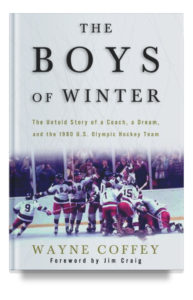The wisdom of our ancestors has never been easier to get our hands on.
In 1909, the president of Harvard University, Dr. Charles W. Eliot, released a reading series purporting to offer a liberal education in one, 51-volume anthology. Think of it as a bouillon cube of the collected wisdom of history.
Dr. Eliot’s collection included poems, philosophy, political writings, and theological works – even the Hippocratic oath! Read his full list here.
He claimed that any American could get a basic liberal education with only fifteen minutes of reading each day. Not only that, he boasted that his curated collection fit the essentials of civilization on a five-foot shelf.
In 2014, Dr. Paula Marantz Cohen, an English professor at Drexel University, dusted off her collection of Harvard Classics. A literal unused inheritance from her husband’s aunt, she decided to take Dr. Eliot up on his wager that, with a time investment of only fifteen minutes a day, these works would “bring to you the rare pleasure of commingling with great minds, they feed your mind with stimulating thoughts, they turn your mind into fresh channels.”
She reflects on her experience reading the series:
Most of the big names were represented—the major DWEMS (dead white European males), as they would be irreverently dubbed later in the century. Having spent the year in their company, I could see how their analytical and skeptical cast of mind had laid the ground for their deconstruction. I also saw the value of returning to them with renewed reverence.
One of the benefits of the regimen was to open me to authors I had never read before and inspire me to read more. I would definitely return to Hume, Voltaire and Burke. The passages from Dryden’s translation of “The Aeneid” (I genuinely liked the rhyming couplets) were enticements to read the whole translation. I was so inspired by the excerpt from “Franklin’s Autobiography,” where Ben laid out a personal self-improvement plan (complete with charts), that I am contemplating imitating him. By the same token, I hope never to see again Richard Henry Dana’s “Two Years Before the Mast,” for some reason a favorite with the editors.
The year’s readings began with Franklin’s resolutions to improve his behavior. Looking ahead, I see they will end with Thomas Carlyle’s call for diligent reading to create interest and direction in life. The American genius opened the cycle, the British one would close it. From forward- to backward-looking, from active to reflective, from youth, one could say, to age—a worthwhile journey.
Here’s the best part: you don’t need to inherit a full leather-bound set of these books to try Dr. Cohen’s experiment. The entirety of the Harvard Classics is now public domain. With a few clicks, the greatest writings of world history are available on your smartphone – for free. The wisdom of our ancestors has never been easier to get our hands on.
A “liberal education” is the life of learning suited to a free man. Being an American means we have rights – but also, responsibilities. One of those responsibilities? We must read and contemplate the great thinkers whose ideas form the foundations of our society. We must wrestle with those big ideas. And we must keep reading, so we continue to question our assumptions. Reading helps us to be open to new perspectives and ways to see the world.
The Harvard Classics are just one list. You may or may not agree with Dr. Eliot’s curriculum – perhaps you believe there are new or different books that merit inclusion. Or perhaps you find one of his selections unworthy. But a familiarity with these works are a common entry point to the debate of what should be on this list.
Today, we live in an age where being “well-read” seems to mean “caught up on your social media feeds.” It is no wonder that our political debates are shallow and tribal.
A four-year degree at in an Ivy League classics program is outside of the reach of most Americans. But might we consider investing in a five-foot shelf? Get started with the Harvard Classics, here.

 A101 Team
A101 Team 